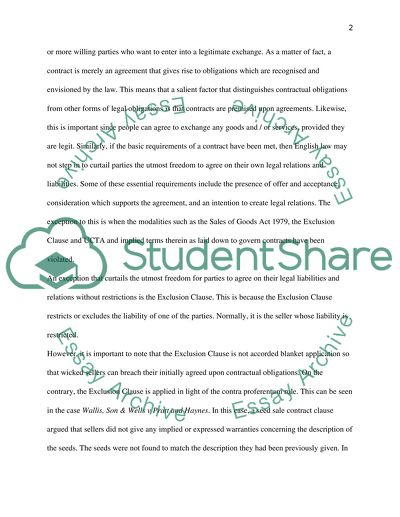Cite this document
(“English law allows parties the utmost freedom to agree their own legal Essay”, n.d.)
English law allows parties the utmost freedom to agree their own legal Essay. Retrieved from https://studentshare.org/law/1466130-english-law-allows-parties-the-utmost-freedom-to
English law allows parties the utmost freedom to agree their own legal Essay. Retrieved from https://studentshare.org/law/1466130-english-law-allows-parties-the-utmost-freedom-to
(English Law Allows Parties the Utmost Freedom to Agree Their Own Legal Essay)
English Law Allows Parties the Utmost Freedom to Agree Their Own Legal Essay. https://studentshare.org/law/1466130-english-law-allows-parties-the-utmost-freedom-to.
English Law Allows Parties the Utmost Freedom to Agree Their Own Legal Essay. https://studentshare.org/law/1466130-english-law-allows-parties-the-utmost-freedom-to.
“English Law Allows Parties the Utmost Freedom to Agree Their Own Legal Essay”, n.d. https://studentshare.org/law/1466130-english-law-allows-parties-the-utmost-freedom-to.


